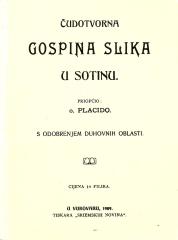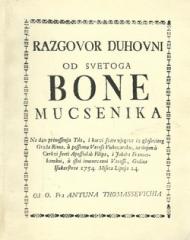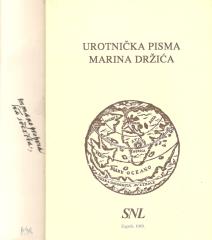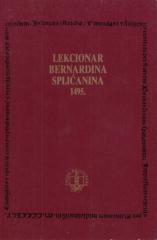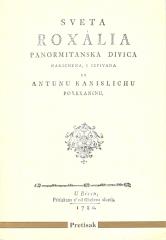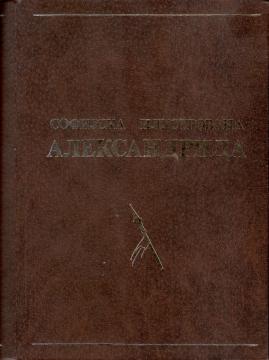
Sofijska ilustrovana Aleksandrida
Alexandrida is a medieval novel about Alexander the Great and his conquest of the world. Phototype edition.
The novel about Alexander the Great is a reworking of the history of his wars, but a reworking in which the otherwise legendary personality of the Macedonian king is made into a fantastic figure. The novel was translated into Serbian in the 14th century and exists in three versions, in Glagolitic, Cyrillic and Bosnian Cyrillic. The novel is very long, over a hundred pages.
Two translations of the novel have been preserved in Croatian medieval literature. They are written in Bosnian, one in the Chakavian dialect (from the mid-16th century), the other, younger, in Štokavian. Both are translations of the Church Slavonic-Serbian original, which in Russia received the name Serbian Alexandria. The language was called Serbian in that original, so the Croatian translators kept that name as well.
Dubrovnik poets also mention Lesander the Serb, and Alexander's charter, by which he gave special privileges to the Slavs, and which the Czechs and Poles refer to as early as the 13th century, is mentioned with particular pride by historians Mavro Orbini and Andrija Kačić-Miošić in Razgovor ugnošno.
With its character as a folk book, the novel was close to the folk psyche, so it also influenced folk oral literature. Some of the traces in our folk literature were recorded by Stojan Novaković in the mentioned book. Thus, the episode with the army's journey through the "dark vilayet" on small stones that later turned out to be precious stones is recorded by Vuk in Rječnik with the entry "Darkness", and another variant of that incident was recorded by N. Dučić in Montenegro. An episode with immortal (living) water also often occurs, such as the one about Darius and Porus. In Dušan's Marriage, his chosen one is called Roksanda, a name taken from the novel about Alexander.
One copy is available
